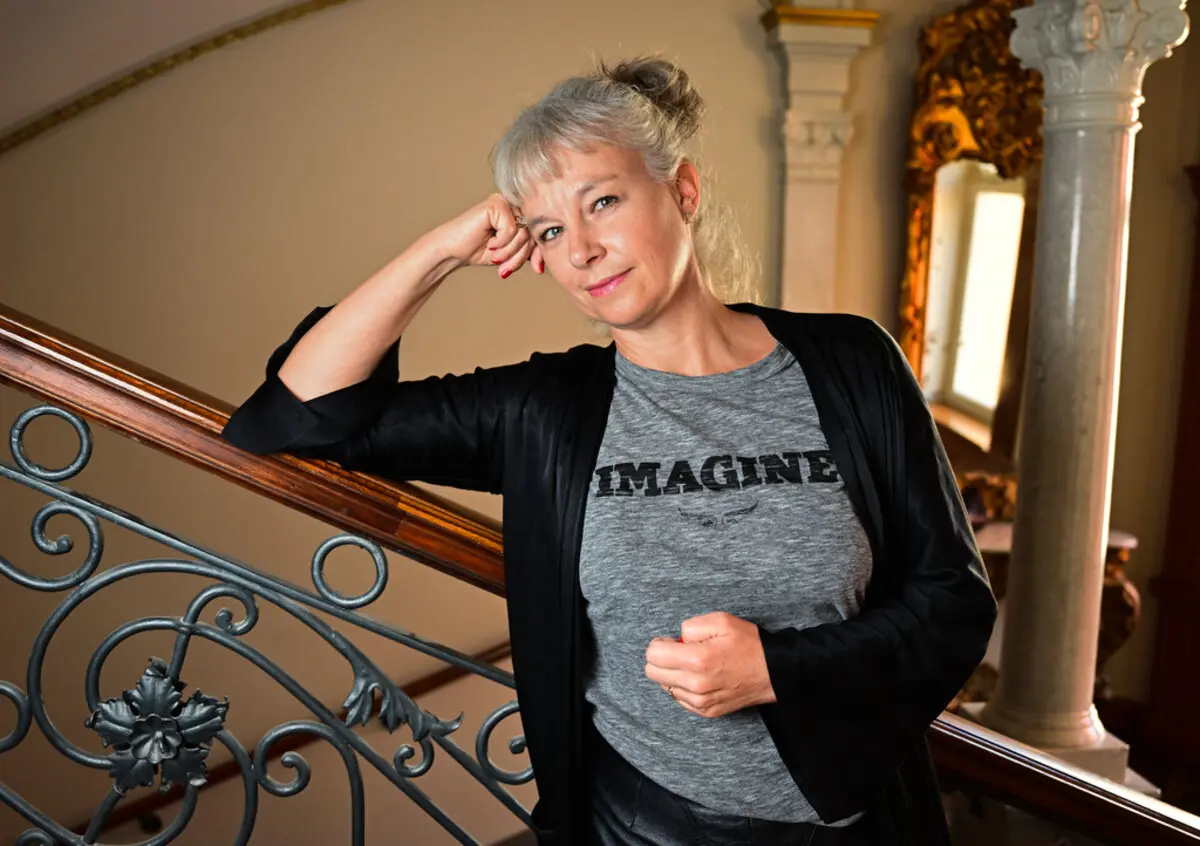The comparison comes from her main character Nina. In "Farewell to Panic Beach", Nina remembers her childhood's free beach life where adults gossip, smoke, and drink lukewarm beer in the reeds. Nina lives in the summer house together with her drinking father, Matti, and will later in life realize that she has her entire strange family on a giant barge that she drags with her into the future.
But still – say "the social heritage" and Sara Stridsberg defends herself.
I think I write to get away from those words. I try to understand in a different way, and in such a world, there is a multitude of people and events, choices and destinies that interact without us being able to oversee. I try to hold onto everything at the same time, the evil and love, without rejecting it or cutting anything out.
Bright Heritage
The heritage, even from a family with "fools and destroyers" as she says, contains some light.
It may not be the heritage one wishes for or dreams of, but a heritage that gives something else, perhaps a special view of the world, a special pulse, the pulse of life.
She has just returned from France, which has embraced both her prose and plays. 20 years after her debut novel, Sara Stridsberg has reached a place where she thinks she has a new outlook, and maybe that's why she grasped an entire family in this, her sixth novel, instead of just focusing on the relationship between Nina and Matti.
It's as if I see more of life and the world and people for each book I write, but it would be deeply tragic if it were the other way around, ha ha.
"A Safety Net"
But the adult Nina still seeks explanations where she stands "at the intersection of love and rage" as Stridsberg puts it.
I also long for explanations, but also to stretch further, out towards what cannot be understood.
That's perhaps why one tells stories – to survive, stories are a kind of safety net and incantations. To be able to ask the toughest questions there.
In the new novel, she also uses a more direct language.
It's indeed dark in many ways – a book of mourning – but perhaps there's something more carefree in the language. Often, my friends have said "why doesn't your humor come out in the books?". This is written with a softer pen.
Erika Josefsson/TT
Facts: Sara Stridsberg
TT
Born: 1972.
Lives: In Stockholm.
Background: Law degree.
Occupation: Author and playwright.
Novels in selection: "Happy Sally" (2004). Received the Nordic Council's Literature Prize for "Dream Faculty" in 2007. "Beckomberga" (2014), "Love's Antarctica" (2018), Play in selection: "Dissection of a Snowfall" (2012) (premiere on Friday at the National Stage in Oslo), "Wounded Angel" (2021), "A Grave for Two" (2024).
Other: Left her seat in the Swedish Academy in 2018
Currently reading: "Monique s'évade" (Monique Flees) by Édouard Louis.
...about her literary themes:
I think it's too late for me to leave them. I would be very surprised if I suddenly had new themes that didn't touch on the old ones. Everything is connected. For me, it becomes more and more like one single work that I move within. But I don't think I'm finished, or I know it.
The choices will come back.
...about the slowness of writing:
What I love about writing is the persistent and slow. You can think about things for almost a thousand years. It's a long work to write, and it's incredible what you can find there, I can feel stupid sometimes for thinking so slowly about things, that it takes such a long time.
...about psychological explanations:
We always try to use the simplest explanatory models, especially in our time when psychology has taken such a strong grip on people's thinking. I may have wanted to take a greater grip on fate, perhaps also tell something about the difficulty of telling, that you can never really know anything about a person.
...about the novel with a capital R:
It can contain so much, it's the unique and rather enigmatic thing in the world that can change the gaze of the one who reads. In the best case, it has been for me, it can be like a temporary university. I love the Novel for its mild, merciful light.
...about forgiveness:
The question of forgiveness is of such a nature that it's only the unforgivable that it's worth trying to forgive. Therefore, the question cannot cease, it's a kind of bird that will fly forever within every human being.






